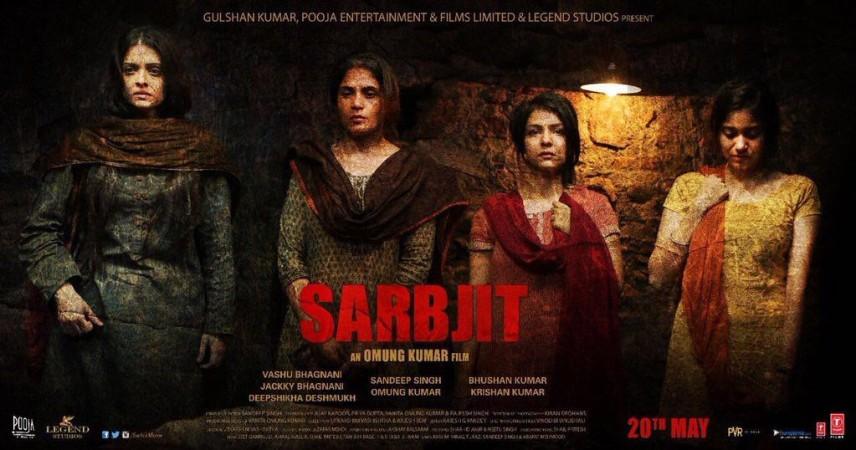
IBTimes India Review: 2.5
Seriously, whose film is "Sarbjit"? It's definitely not Randeep Hooda's, who gets much lesser screen time than the top-billed star, despite his acting being as impressive as ever. It's not Aishwarya Rai-Bachchan's either, especially because she is too screechy and off-character too often as Sarabjit's sister Dalbir Kaur. And try as he might, like he did with the error-ridden last-scene commentary, this film is not director Omung Kumar's, because he has not done justice to a great subject and a lot of talent his actors brought to the film.
So why does this review give the film two and a half stars? It's because the talents aren't entirely wasted, and Omung Kumar has got at least some things correct. Thus, despite an erratically plodding first half, he manages to deliver some really touching moments, but they come too late in the second half to leave lasting impression.
But first, the story. Sarabjit Singh, a farmer in the village of Bhikiwind in Punjab, wandered into Pakistani territory one night in 1990, and was arrested and accused of causing five blasts in Lahore. "Sarbjit" tells the story of his travails in jail and his father, sister, wife and two daughters' efforts to secure his release.
Sarabjit's story sure had enough twists and turns to attract Bollywood's attention, but that has resulted in a near-total loss of nuances when it comes to portraying characters. People in "Sarbjit" are painted with such bold strokes and so devoid of deft character-building touches that at some point it all seems like a children's parable.
As has been mentioned earlier, Hooda is really impressive as the eponymous character, but one does get the feeling that there was an active choice at play when Aishwarya, being the bigger-billed actor, was allotted more screen time.
The Bachchan bahu, on her part, is impressive in a couple of scenes, but otherwise, when she is not screechy, she is off-character, liberally interspersing her Punjabi with Hindi. And she also comes across as plastic at times, like the scene when she is apparently hit on the head with a rifle-butt. The only reason the audience knows she is hurt is because she immediately clutches her head. There's no cocking back of the head from the impact of the rifle butt!
On the other hand, Richa Chaddha is at her muted best as Sarabjit's wife, in a complete U-turn from her delicious garrulousness in films like "Fukrey." In fact her final scene is probably one of the most emotive ones of the film. It's sad how she was under-utilised. Darshan Kumar, who looks like he may become a regular in Omung Kumar's films, is slightly better than mediocre, but he still has a long way to go.
But all this positivity is undone by the film's treatment. Scenes that needed to be served up as gourmet get plated like the chewed bananas some simian babies need in order to be able to digest them. And situations that required deft direction are dealt with in such ways, like the two cats in Sarabjit's cell being an allegory for his daughter getting married, that they seem like hasty afterthoughts. Surely cats aren't allowed for prisoners in solitary confinement. So is Sarabjit losing his sanity. The possibility is brought up much later, when the audience are long past that scene.
In the end, "Sarbjit" does only a halfway decent job of telling the story of the Indian prisoner in Pakistan, and deserves to be rated accordingly.
















